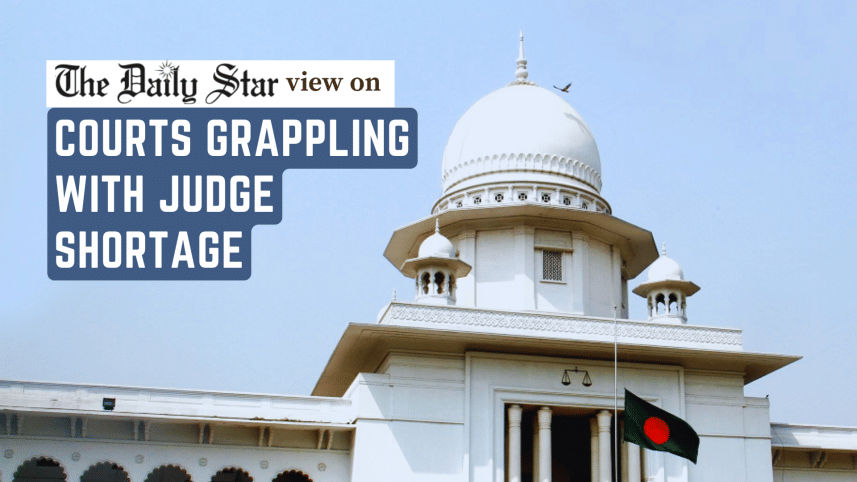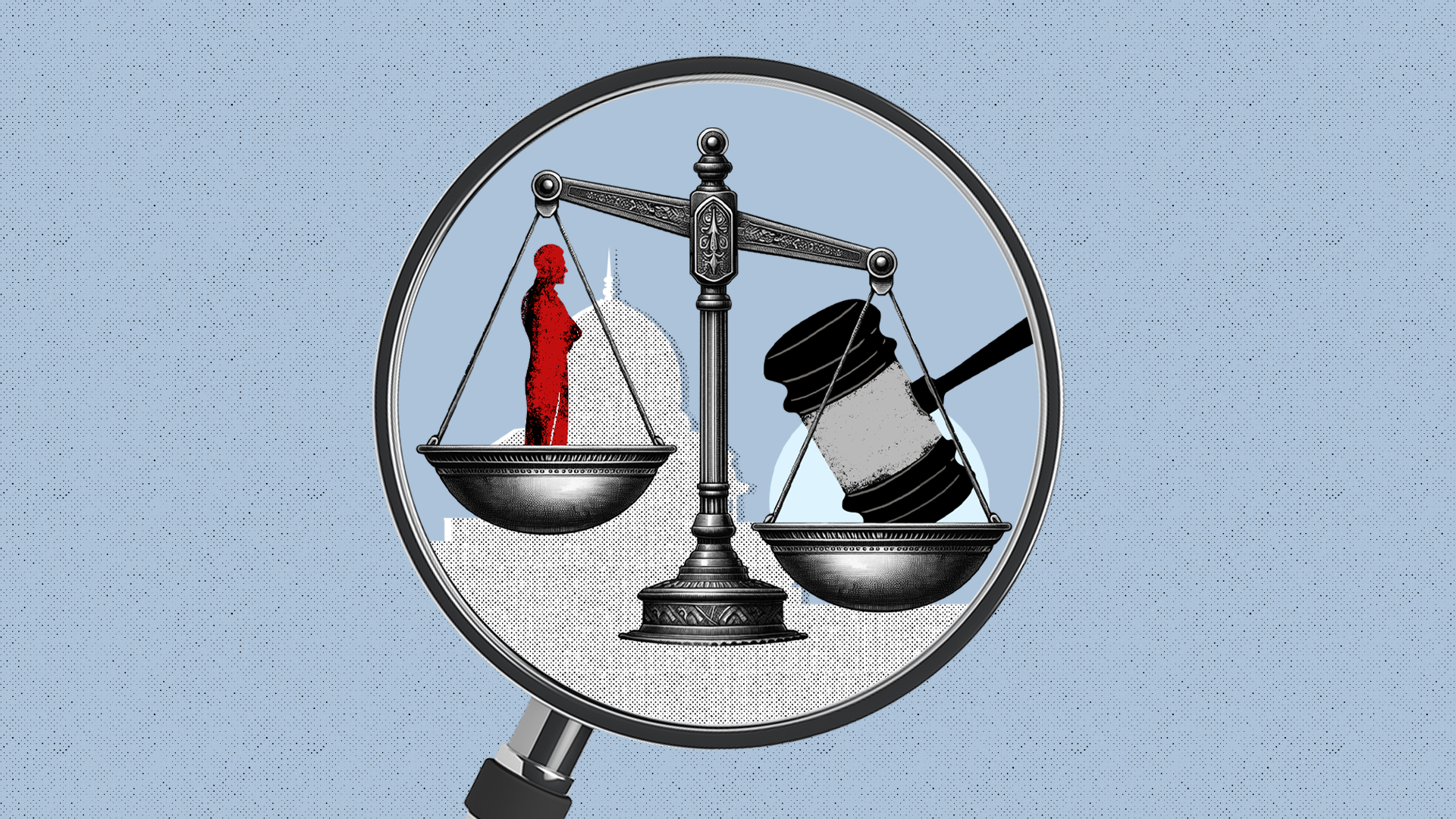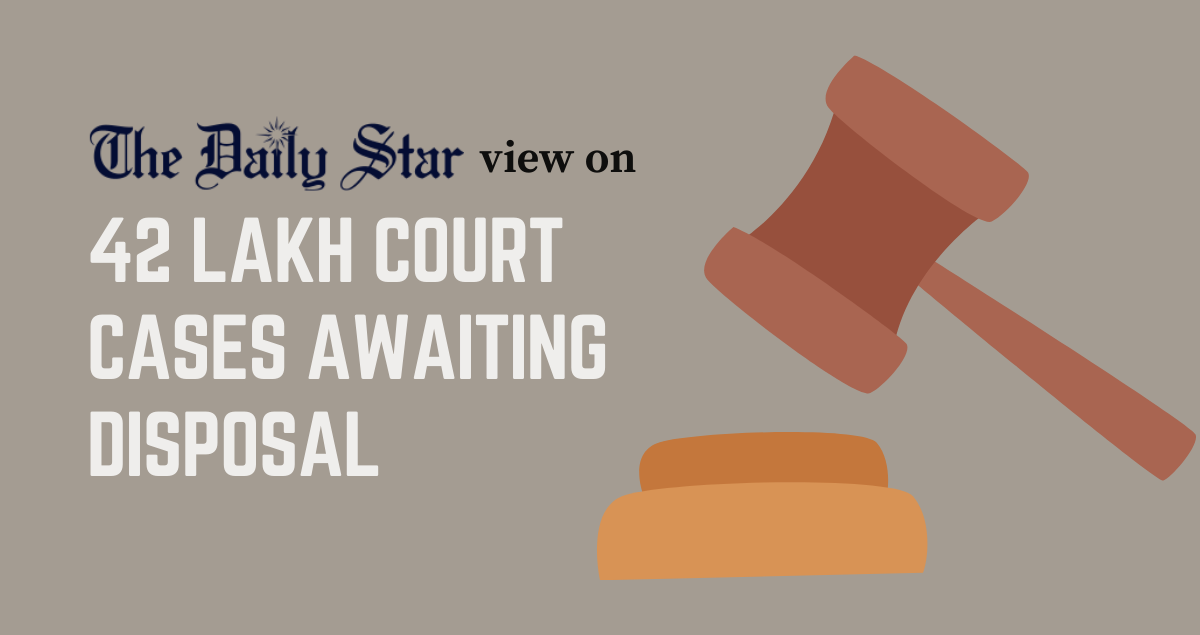The judiciary must reduce its case backlog

It is alarming that the administrative needle on judge recruitment is not moving fast enough, despite the sheer crisis of judges, sufferings of justice seekers, and recent efforts to strengthen the judiciary so that it can function better. According to a report by this daily, Bangladesh has 2,307 judges for 18 crore people—or one judge for every 78,023 citizens—giving it one of the lowest judge-to-population ratios in South Asia. For context, India has one judge for every 68,775 citizens, Nepal one for every 63,000, and Sri Lanka one for every 55,000, as per data from Law Lab. Pakistan and Afghanistan, understandably, fare worse, while the Maldives and Bhutan maintain far higher ratios.
The effects of such a crisis cannot be overstated. In Bangladesh, this is a major factor behind its staggering backlog of 46.52 lakh cases—with each judge handling an average of 2,016—meaning that millions remain trapped in prolonged legal limbo. The severity of the problem is further underscored by the fact that the Appellate Division has only seven judges handling a total of 37,000 cases. Without urgent action to recruit more judges and overhaul or strengthen the existing judicial infrastructure, trust in the justice system cannot be restored. Ongoing efforts have left a lot to be desired, however.
Although 25 judges were recently appointed to the High Court Division, bringing its strength to 113, several remain on leave or sidelined from judicial duties. Moreover, the newly appointed judges have yet to start presiding over benches. These problems compound one another, as the huge backlog of cases makes it extremely difficult to secure hearing dates even for urgent cases. It's worth recalling that the Judiciary Reform Commission suggested raising the number of lower court judges to at least 6,000 from around 2,000. According to sources, there are plans to appoint judges to the lower courts through the Judicial Service Commission, with the appointment of around 100 said to be in its final stages. These initiatives, along with the formation of 13 monitoring committees comprising High Court judges, are meant to keep the backlog at a manageable level.
However, given the scale of the shortage and the mounting caseload, much more needs to be done, and faster. As an expert has said, at least 1,000 judges should be appointed within the next few months both in higher and lower courts, and there should be a centralised system for prioritising cases based on urgency with strict time limits for hearings. Even appointing retired district judges on a contractual basis, especially in districts with high caseloads, should be considered, as recommended by the Judiciary Reform Commission. One also hopes that the recent High Court ruling—restoring the Supreme Court's authority over the transfer, posting, and discipline of lower court judges, and forming a separate judicial secretariat—will lead to better administration and caseload management. But change will not materialise automatically; it will require sustained effort to ensure meaningful reforms that can finally address our crippling case backlog, among other problems.



 For all latest news, follow The Daily Star's Google News channel.
For all latest news, follow The Daily Star's Google News channel. 


Comments